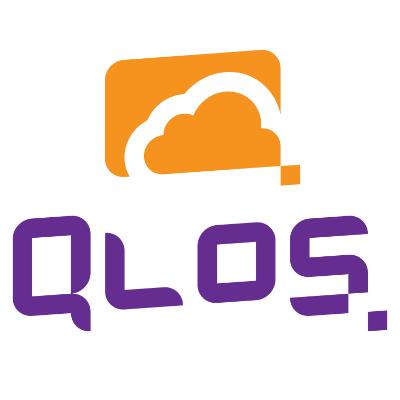Poznan GO Devs #11

Zapraszamy na spotkanie już w dniu 16.04.2024 od godz 17:15 do siedzibie Nobl9 Poland Sp. z o.o., ul. Wierzbięcice 1a, 61 - 569 Poznań.
#1: Daniel Antos
Topic: Art of Architectural Dialogue: How to Ideate, Discuss, and Express in the Code
The best ideas come from opinions clashing. Software architecture isn’t different. There are ways to discuss, which will stifle diversity of thought. There are techniques, which promote deep thinking. There are processes more suitable for remote or hybrid environments. We can have fantastic ideas, and still lose our teammates’ buy-in along the way.
We will go through which behaviors we should avoid, how to initiate and lead architectural discussions, and how to express these intentions in Go. From issues with ivory tower architects, through keeping decision records, ending on enforcing structure using tools like “internal” folder in Go.
Driven by a deep passion for solving users’ problems while upholding technical excellence. I thrive on the collaborative spirit of programming, viewing it as a continuous team effort and an endless journey of improvement.
In my free time, I am an avid reader, fitness enthusiast, and psychology aficionado, always eager to explore new avenues. Cherishing moments spent in nature, I find solace in activities like walking, camping, hiking, and kayaking, connecting with the world and recharging my creative spirit.
#2: Robert Laszczak
Topic: Gopher Toolbox: Techniques and Tools Every Senior Go Developer Should Understand
Znajomy polecił Ci technikę, która wydaje się być idealnym rozwiązaniem problemu, z którym się zmagasz. Przekonałeś resztę zespołu do tego pomysłu i po heroicznej walce wprowadziłeś nową technikę w projekcie. Jednak, po upływie czasu, pół roku później, dochodzisz do wniosku, że pierwotny problem wciąż istnieje. Co więcej, teraz nie jest to jedyny problem. Pewnego dnia zauważasz, że ktoś znany pisze: “Ta technika nie działa”. Uff, więc to nie moja wina. Brzmi znajomo?
Z mojego doświadczenia wynika, że większość technik i narzędzi nie jest bezużyteczna. Problem często leży w ich zastosowaniu do rozwiązania niewłaściwego problemu lub w niedostatecznym zrozumieniu danej techniki. Czy można powiedzieć, że młot pneumatyczny jest złym narzędziem, tylko dlatego, że próbując nim wbić gwóźdź, przebito ścianę na wylot?
W moim wystąpieniu skupię się na omówieniu najważniejszych narzędzi, które powinien znać każdy, aspirujący do miana seniora Golang Developera. Co więcej, podzielę się moimi doświadczeniami dotyczącymi sytuacji, kiedy te narzędzia okazały się skuteczne, a kiedy były niewłaściwym wyborem.
W ciągu dnia pracuję jako Principal Software Engineer w SlashID, gdzie buduję rozwiązania IDP na skalę globalną. Nocą prowadzę bloga na https://threedots.tech/. Autor “Go With The Domain” i Watermill.io.
Moja przygoda z programowaniem trwa już 16 lat, podczas których poruszałem się po różnych domenach, w tym infrastrukturze, globalnych platformach finansowych i security. Kilka lat temu w końcu znalazłem język, który pokochałem: Go.
#3: Miłosz Smółka
Topic: Killing the legacy and other CQRS stories
Do you know the feeling when your project gets stuck, and you can’t move forward? You see a few ways out, but all seem equally bad. You start wondering if the project is doomed or if you just miss some special knowledge. I felt this the most while trying to move out of legacy systems, but it’s common in many projects.
Over time, I learned that changing your mental model may reveal a solution you didn’t see before. Looking back at some of my projects, I realized one of the patterns that helped me think differently was CQRS.
It doesn’t matter if you’ve used CQRS before, as I don’t plan to bore you with abstract definitions. A lot has been said about the theory of CQRS. Instead, I want to show how I used it in practice. I will share three real stories from different companies and projects where I managed to move forward and better grasp CQRS. One of them was the most challenging: killing the legacy codebase.
I write about Go, modern business software, and related topics at https://threedots.tech. I enjoy sharing what I learned while working at startups and building products in different fields. Principal Backend Engineer at GetHarley
Sponsorem spotkania jest firma Nobl9.
Jesteśmy Nobl9 - amerykańskim startupem z zespołem developerskim w Poznaniu. Rozwijamy platformę służącą do badania niezawodności oprogramowania. Pomagamy programistom, praktykom DevOps i inżynierom niezawodności szybciej dostarczać niezawodne oprogramowanie. Dzięki definiowanym programowo Service Level Objectives (SLO) pomagamy powiązać monitorowanie, logowanie, śledzenie oraz zadowolenia użytkowników z biznesowymi KPI.
Zapraszamy również do naszego profilu na Linkedin
Termin: 16 kwietnia 2024 / g.17:15
Nobl9 Poland Sp. z o.o.,
ul. Wierzbięcice 1a,
61 - 569 Poznań







